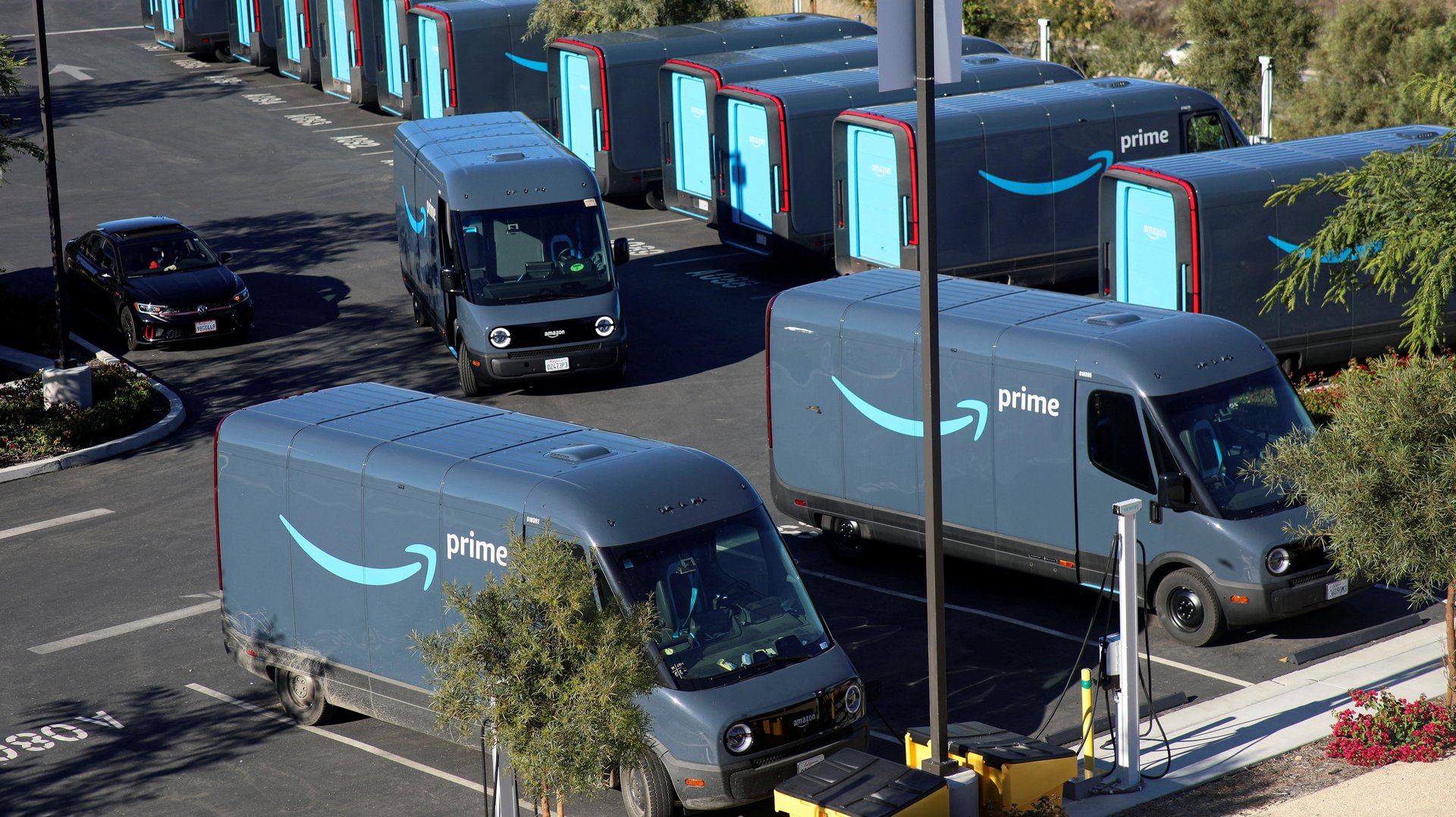Why Rivian and Amazon are consciously uncoupling
The commercial electric delivery vans will now be available for other businesses to order—and it's good for both companies

After four years of commitment, Rivian is moving on from its exclusive relationship with investor-turned-client Amazon.
Suggested Reading
The Irvine, California-based electric vehicle maker will start selling its battery-powered delivery vehicles to new customers, it announced during its third quarter earnings results yesterday (Nov. 7).
Related Content
The end of exclusive sales to Amazon is “a positive as it allows (Rivian) to sell more delivery vans which carry a higher margin than its consumer vehicles,” Baird equity analyst Ben Kallo said in a research note, as per Forbes.
Rivian, which started off as a sports-car maker in 2009 and pivoted to EVs in 2012, brought on Amazon as a backer in 2019. Beyond funding, the partnership provided a consistent long-term order flow and public visibility. And it’s not over with Amazon—Rivian will still honor its 2019 commitment to deliver 100,000 vans to the Seattle-based retail giant by the end of the decade. (Of this, 10,000 are already in Amazon’s fleet.)
Still, the EV manufacturer has always known it has to seek more sources to earn more cash and forge a path to profitability. It can’t just be at the mercy of Amazon, who could dictate and tweak order value, size, and delivery time as it saw fit.
It’s not a losing hand for Amazon, either. The “everything store” has a nearly 17% stake in Rivian, so it stands to benefit from the expanding the business, too.
A brief timeline of Rivian, post-Amazon
October 2021: “The success of our business depends on attracting and retaining a large number of customers,” Rivian says in a regulatory filing with the US Securities and Exchange Commission (SEC). “If we are unable to do so, we will not be able to achieve profitability.”
November 2021: Rivian adds a new section to its website for enquiries about fleet versions of its pickup truck and SUV, its fleet management platform FleetOS, and its charging infrastructure. It says businesses can “plan and place their fleet order” in early 2022.
July 2022: Amazon starts accepting Rivian deliveries and putting them on the road.
March 2023: Rivian starts trying to remove the exclusivity terms from its Amazon deal due to lower-than-expected order numbers for this year, the Wall Street Journal reports. Both companies say the agreement remains unaltered.
August 2023: “[We’re] actively working with Amazon to allow us to sell vehicles outside of Amazon sooner than what was originally contemplated in our contract,” CEO RJ Scaringe says during Rivian’s second quarter earnings call
Quotable: Rivian and Amazon were always going to decouple
“Rivian and Amazon share a mission to decarbonize last mile delivery and have been working together since 2019 to make that a reality. This has been part of our plan with Rivian from the beginning—we’ve always said that we want others to benefit from their technology in the long run because having more electric delivery vehicles on the road is good for our communities and our planet.”
—Udit Madan, Amazon’s VP of Transportation.
Rivian’s financial report card, by the digits
16,304: Vehicles Rivian produced in the three months ended Sept. 30
15,564: R1T pickups, R1S SUVs, and delivery vans Rivian delivered in the three months ended Sept. 30
$1.34 billion: Rivian’s record revenue in the quarter ended Sept. 30
$1.37 billion: Net loss, down from $1.72 billion a year ago
54,000: Rivian’s increased 2023 production target, up from 52,000